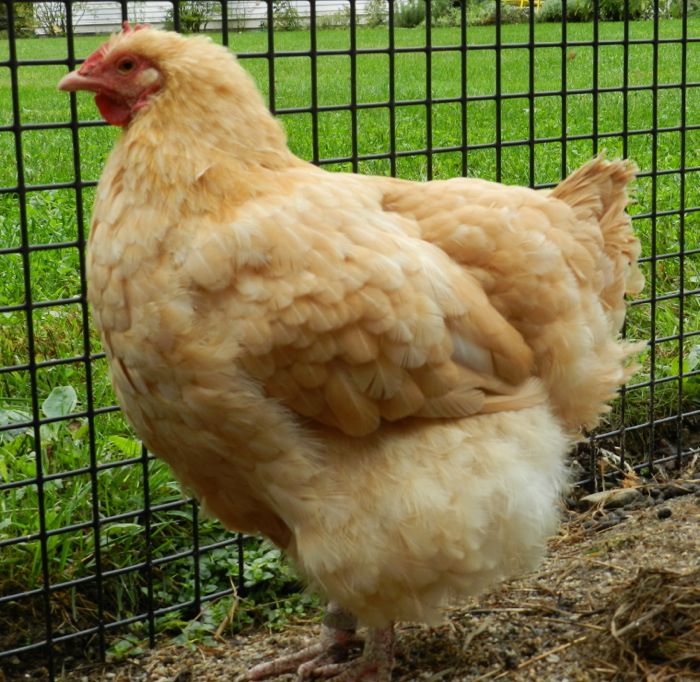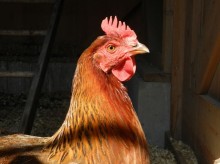The question how long do chickens live? is not one that anyone used to ask because poultry are rarely kept past their second year. As much as many of us love our chickens solely for their charm and character, it’s important to understand that historically their primary reason for being has been for food. Because meat birds are eaten when they are a few months old, and laying hens are most productive in their first two years, chickens have never been designed to last longer. Even in the past, on small farms, laying hens were harvested for the stew pot by the age of eighteen months. After that they’re barely worth turning into broth. From a farmer’s perspective, replenishing stock every year makes sense, but what does this mean for those of us who have chickens that become pets? We have issues that “real” farmers, even those who kept small homesteads in the 1800s, have never had to face.
In the first two years most losses will be due to infectious respiratory diseases. Hopefully, immediate treatment with antibiotics will enable many of your birds to survive. Two diseases too frequently seen are kidney failure and fatty liver disease. These, however, are preventable with proper feeding. Also in the first two years, hens will die from laying glitches. Making eggs is a complicated system and all does not always work smoothly. Internal laying and prolapse are two of the many issues that occur in flocks.
Hens that live into their third year and beyond lay fewer eggs each season. Their molts take longer, they forage less and they nap more. Your best layers will usually be the first to get sick and die. It takes a huge effort to make an egg day in and day out. The hens simply get worn out. When one part fails, everything does. As they age, hens develop a multitude of reproductive issues. Sometimes the tract becomes diseased, sometimes it breaks, and a piece of it solidifies and gets expelled. Sometimes the hen can no longer process calcium to make solid egg shells. The eggs break inside of her. Eventually, these issues cause death. Hens also get diseases which are serious and irreversible. Cancer and tumors are prevalent. Sometimes the digestive tract becomes diseased or impacted. I’ve had hens begin to starve because they could no longer digest food. (I’ve written extensively about the kindness of euthanizing hens. They don’t show suffering in a way you’re likely used to, and they’re not going to tell you when they’re done. You have to decide. This is the hard, yet unavoidable, part of backyard chicken keeping.)
It’s not always disease that gets your flock. Regardless of how carefully you protect your chickens, predators will find a way in. Suddenly, you lose one hen, or all of them.
A hen that lives past the age of four might have a few more years – I’ve noticed that the ones that managed to live that long aren’t as prone to ailments. By seven she has truly defied the odds. In my own flock, I’ve had hens live to be nine. It’s rare, but it happens, that a hen will live for a dozen years.
It’s crucial that a person who is thinking about keeping a few chickens in their backyard takes into account that a hen can live for years after she is no longer productive. If there are zoning restrictions on flock size, what will you do when your hens are too old to lay? Some people chose to cull at two years when feeding the chicken costs more than the value of the eggs that she lays. Other will keep the old hens on as pets. If that’s the decision, then it’s also important to understand that hens get sick, that veterinary help is hard to find, and that when it is it available it’s prohibitively expensive and rarely effective. Sick hens often suffer for weeks before they die, as owners do not know how to make the final decision about euthanasia. Anyone who keeps chickens will face making very difficult end of life decisions.
Despite the ailments and lack of eggs, by the time one of my hens stops laying, she’s become part of the fabric of my backyard community. I do what I can to keep the old chickens around. It’s good to see my old friends doddering about the yard. As long as my old hens eat with vigor and cast a curious eye to the world, I know that they have more time. I’m committed to giving the older chickens a good quality of life until the end. But, I always keep in mind that long life is not the standard, and that it is okay when a hen has lived only a couple of years. Death is part of keeping chickens.


